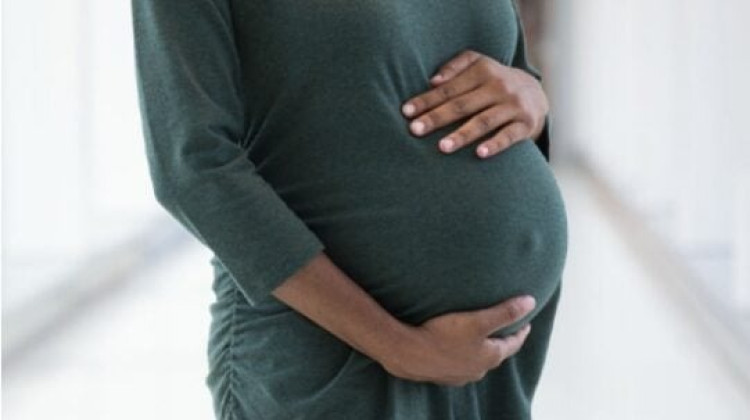The Children’s Museum of Indianapolis has a lot in common with Disneyland, the starting point for the current measles outbreak, which has infected more than 100 people and spread to 14 states. Kids there interact a lot with their environment, sometimes putting their hands in their mouths, then everywhere else — then back in their mouths. To fight the spread of germs, at the museum, hand sanitizer and soap and water is never far away, and the staff is vigilant about wiping down surfaces with disinfectants.
But a disease like measles isn’t likely to be stopped by sponging down the museum, says Ross Silverman of the IUPUI School of Public Health. Measles can spread through the air, and remain active outside the body for up to two hours. So instead, the key to stopping an outbreak is in is in the hands of grownups, who decide whether they get vaccinations for their kids and themselves. It all comes down to herd immunity.
“We need to have population that is resistant to outbreaks of measles,” says Silverman. “That's really the one way to reduce the likelihood that it’s going to be spread.”
So in addition to cleaning and disinfecting, part of what protects the Children’s Museum from an outbreak like the one in California, is the law. And in that respect, Indiana is doing pretty well.
California allows parents to forego vaccinations for their children for personal reasons, like the belief that vaccinations cause autism. Indiana residents can skip a vaccination if it’s against their religion or for a medical reason, but exemptions for personal or philosophical reasons are not allowed. This means that in Indiana, fewer children are skipping the vaccine.
Last year, California saw an exemption of about three percent. Indiana’s exemption rate is less than one percent, which means the state as a whole is less susceptible to an outbreak, according to Silverman.
But people who choose not to vaccinate tend to live in clusters, which increases the risk. Even with its high vaccination rate, Indiana has seen 67 measles cases in the last decade.
For political reasons, getting rid of religious exemptions may not be an option, but some states that also allow these types of exemptions are stricter than Indiana. Silverman points to New York, where officials do more to ensure religious exemptions are legitimate.
“So in the state of Indiana, if you fill out an exemption request, you can use the right words and all the state is going to do is check to make sure you have properly filled out the form,” says Silverman. “New York may be able to better get at whether your exemption request is a health concern disguised as a religious request.”
Pam Pontones, an epidemiologist with the Indiana State Department of Health, says that because the exemption rate is so low, there are no plans to change how the current rules are enforced.
Like Silverman, Pontones doesn’t seem worried that measles will hit Indiana, but the department is keeping an eye out, just in case. “We are making a concerted effort to inform our healthcare providers, our local, health departments, hospitals and laboratories to make sure they know what to do if they would encounter a suspect measles case.”
In the meantime, she said vaccination is the best possible defense against measles, and that even though hand sanitizer is convenient, like at the Children’s Museum, it’s still not as effective as soap and water.
 DONATE
DONATE







 Support WFYI. We can't do it without you.
Support WFYI. We can't do it without you.